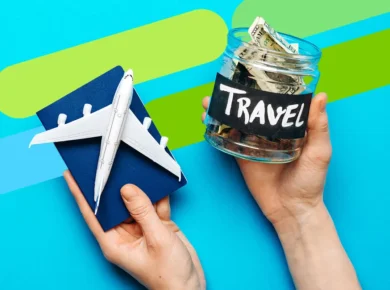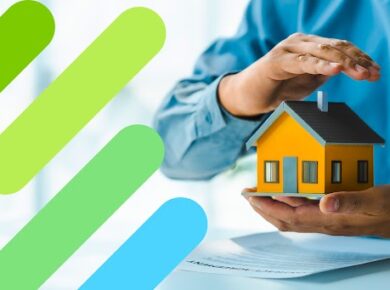Do you feel overwhelmed by debt and don’t know where to start to free yourself from it? You’re not alone. Many people face the same situation, but the good news is that it’s possible to get out of debt and regain control of your finances. In this practical guide, I’ll share effective strategies and useful tips so you can start your path toward a debt-free life today.
Table of Contents
Accept and Analyze Your Financial Situation
The first step to getting out of debt is recognizing and accepting that you have a situation that needs attention. It can be overwhelming, but facing it is essential.
Make a Detailed List of Your Debts
- List all your debts: credit cards, personal loans, student loans, mortgages, medical debts, etc.
- Include important details: total amount owed, interest rate, minimum monthly payment, and due date.
This will give you a clear picture of how much you owe and to whom.
Starting your path to a debt-free future is one of the best decisions, turning small steps into greater financial freedom and better opportunities.
Adjust Your Budget to Free Up Funds
Once you’ve identified all your debts, it’s time to take control of your finances and review your monthly budget. Adjusting your budget is essential to find extra money that you can put toward paying off your debts. Here’s how to do it effectively:
Calculate Your Income and Expenses
First, you need to be clear about where your money is coming from and where it’s going.
- Enter all your monthly income: Include your salary, additional income, or any recurring source of money.
- List all your expenses: Organize your expenses into two categories:
- Essential expenses: These include necessities like rent or mortgage, utilities (water, electricity), transportation, food, and health insurance.
- Non-essential expenses: This includes subscriptions, entertainment, dining out, impulse purchases, etc.
Identify Areas to Save
Once you have your income and expenses in order, it’s time to make adjustments to free up funds that you can use for debt payments.
- Reduce or eliminate non-essential expenses: Do you have several streaming subscriptions you don’t use often? Could you reduce dining out?
- Practical example: If you currently spend $100 on entertainment, try reducing it to $50 and allocate the other $50 toward your debt payments.
- Negotiate lower rates: Call your service providers, such as phone, internet, or insurance. They may offer discounts or more economical packages if you ask.
Maximizing rewards on everyday expenses, like gas and groceries, is another way to manage your budget. A card like the Titanium Rewards Visa Signature Credit Card can help you earn points on essential purchases without added costs.
Automate Your Savings
If you can identify monthly savings, direct that money immediately toward paying off your debts or an emergency fund.
- Set up automatic transfers: Schedule an automatic transfer to a savings account or directly to your creditors. This ensures that the money isn’t spent on other things and goes where you need it most.
Review and Adjust Regularly
Your financial situation isn’t static, so it’s wise to review your budget monthly or every few months. As you pay off debts or your income increases, adjust your budget to keep it aligned with your goals.
Choose a Debt Repayment Strategy
There are different methods to pay off debt, and choosing the one that best suits your financial and emotional situation can make a big difference. Here are two of the most effective strategies:
Snowball Method
This method focuses on creating motivation by eliminating smaller debts quickly, which generates a sense of accomplishment.
- How it works:
- Order your debts from smallest to largest amount, regardless of the interest rate.
- Focus on paying off the smallest debt while making minimum payments on the others.
- Once you eliminate the smallest debt, the money you were using for it goes to the next smallest debt, and so on.
- Advantage:
It gives you quick victories that keep you motivated. The satisfaction of crossing a debt off your list gives you the boost needed to keep going.
Avalanche Method
This method is more financially efficient because it allows you to save on interest by focusing on debts with the highest interest rates first.
- How it works:
- Order your debts from highest to lowest interest rate.
- Focus on paying off the debt with the highest interest rate first, while making minimum payments on the others.
- Once you eliminate that debt, move on to the next highest-interest debt.
- Advantage:
You save more money in the long term by reducing the amount of accumulated interest over time.
Which Method to Choose?
The choice between the snowball and avalanche method depends on your personality and situation. If you need constant motivation, the snowball method may work best for you. But if you want to maximize savings, the avalanche method may be more effective.
Seek Additional Income
Increasing your income can significantly speed up your debt-free journey. Here are some options to generate extra money:
- Additional jobs or freelance work:
Offer services in areas where you have skills, such as tutoring, graphic design, translation, or writing. Platforms like Upwork or Fiverr are great places to start offering your services. - Sell items you don’t need:
Take some time to go through your home and sell items you don’t use. Websites like eBay, Facebook Marketplace, or Amazon can help you sell clothing, electronics, furniture, or any item you no longer need. Every dollar counts. - Sharing economy:
Participate in platforms like Uber, Lyft, or Airbnb to generate extra income. If you have free time, driving or renting out a room can help you dedicate more money to paying off your debts.
For those with fair or limited credit, options like Upstart Personal Loans offer flexibility, fast approval, and funds to support income-generating opportunities.
Additional Tip:
Create a plan to ensure that any extra income goes directly toward paying off your debts instead of spending it on other things. This way, you’ll speed up your journey to financial freedom.
Consider Professional Guidance
If you feel that you need extra help, a financial advisor or credit counselor can offer personalized guidance.
- Non-profit organizations: There are agencies that offer free or low-cost advice.
- Debt management plan: They can negotiate with your creditors to reduce interest rates or establish more manageable payment plans.
- Ensure the agency’s reputation before committing.
For those building credit, options like the Tomo Credit Card offer no-credit-check applications and flexible cashback rewards, making financial progress more accessible.
Negotiate with Your Creditors
Don’t underestimate the power of good negotiation. Often, creditors are willing to offer more flexible terms to ensure you continue making payments, even if they are reduced.
If consolidating high-interest debt is part of your plan, a loan with no fees, like Discover Personal Loans, may provide clarity and lower monthly payments.
How to Negotiate Effectively
- Communicate early and honestly:
Don’t wait until your debts accumulate or payments are excessively delayed. As soon as you know you’ll have trouble meeting payments, contact your creditors. Explain your situation clearly and honestly, stating your intention to pay but your need for better terms. - Request better terms:
You can ask for things like:- Reduced interest rates: This allows you to reduce your balance more efficiently and pay less interest in the future.
- Waiving late fees: If you’ve struggled, late fees can make things worse. Request that they be waived or reduced.
- More flexible payment plans: Some creditors are willing to extend the payment term or allow smaller payments to help you stabilize your situation.
- Document everything:
Keep a record of all communications. Any agreement you reach should be documented in writing to prevent future misunderstandings. Save emails, letters, and any proof of the new agreed-upon terms.
Additional Tips for Successful Negotiation
- Stay calm and be firm: Don’t let debt stress you out. Negotiate with confidence and explain how the proposed changes will help you keep up with payments.
- Be prepared to commit: Sometimes, creditors may ask you for commitments, such as an initial payment or signing a formal agreement. Ensure these terms are realistic before accepting.
Build an Emergency Fund
While it may seem contradictory, saving while paying off debt is a key strategy. An emergency fund protects you from falling into more debt if an unexpected expense arises, like a car repair or medical bill.
Establishing an emergency fund can be supported by flexible solutions like Avant Personal Loans, providing quick access to funds for unexpected expenses.
How to Start Your Emergency Fund
- Start with a small goal:
You don’t need a large amount at first. Set an achievable initial goal, like saving $500 or $1,000. This will give you a cushion for emergencies without diverting too much money from your debt payments. - Automate your savings:
Set up automatic transfers from your main account to a separate savings account, preferably one you don’t use regularly. This way, your savings grow without requiring monthly attention.
Stay Motivated and Focused
Getting out of debt isn’t a quick process; it requires consistency and determination. It’s easy to lose motivation when results aren’t immediate, so staying focused is key.
Tips to Stay Focused
- Set realistic goals:
Break down your payment plan into small, achievable goals. Instead of aiming to eliminate $10,000 of debt, focus on paying off $500 this month. Achieving small goals will keep you motivated. - Celebrate your achievements:
Don’t forget to celebrate each accomplishment, no matter how small. Every time you eliminate a debt or save a significant amount, acknowledge the progress. These celebrations reinforce your commitment. - Seek support:
Share your plan with trusted friends or family members who can encourage and support you in your journey. If possible, involve someone you trust to help keep you accountable.
Build a Debt-Free Future
Starting your path to financial freedom is one of the best decisions you can make. Every action counts, whether negotiating with creditors, adjusting your budget, or building an emergency fund. The most important thing is to stay focused on your goal and not lose motivation, no matter how small the steps may seem.
Remember: the road to a debt-free future isn’t a race; it’s a marathon that brings you closer to a life with more financial freedom and better opportunities. Start today and shape your future!






